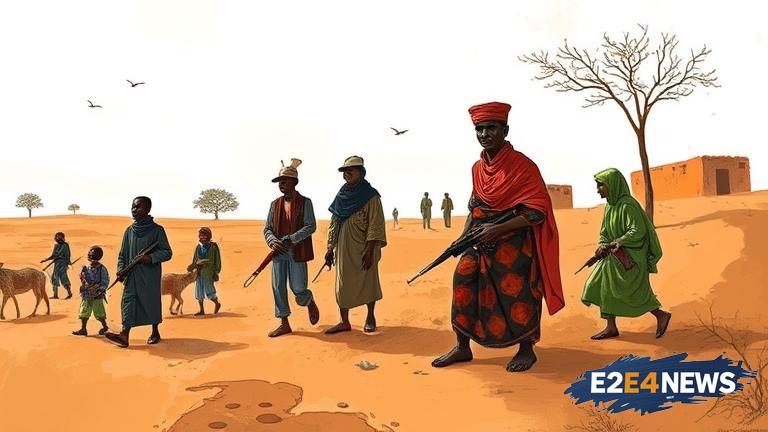The Sahel region, which spans across several countries in West Africa, has been plagued by instability and violence in recent years. NGOs, which have been working tirelessly to provide humanitarian aid and support to local communities, are now finding themselves caught in the middle of the conflict. The rise of jihadist groups, such as Al-Qaeda and the Islamic State, has led to a significant increase in violence and terrorism in the region. At the same time, the presence of military juntas in several countries has further complicated the situation, making it difficult for NGOs to operate effectively. Despite these challenges, NGOs remain committed to their mission of providing aid and support to those in need. However, the risks associated with operating in the Sahel region are very real, and many NGOs are being forced to re-evaluate their presence in the area. The situation is particularly dire in countries such as Mali, Burkina Faso, and Niger, where jihadist groups have established a strong foothold. In these countries, NGOs are often seen as targets by jihadist groups, who view them as representatives of Western powers. As a result, many NGOs have been forced to scale back their operations or withdraw from the region altogether. The impact of this is being felt deeply by local communities, who rely heavily on the aid and support provided by NGOs. The situation is further complicated by the presence of military juntas, which often have their own agendas and priorities. In some cases, these juntas have been accused of human rights abuses and corruption, making it difficult for NGOs to navigate the complex web of relationships and alliances in the region. Despite these challenges, there are still many NGOs operating in the Sahel region, and they continue to play a vital role in providing aid and support to local communities. However, the long-term sustainability of their operations is uncertain, and it remains to be seen how the situation will unfold in the coming months and years. The international community has a critical role to play in supporting NGOs operating in the Sahel region, and it is imperative that they provide the necessary funding and resources to ensure the continuation of aid and support to local communities. The situation in the Sahel region is a complex and multifaceted one, and it will require a coordinated and sustained effort to address the root causes of instability and violence. NGOs, governments, and international organizations must work together to find a solution to the crisis, and to ensure that the people of the Sahel region receive the aid and support they so desperately need. The future of the Sahel region hangs in the balance, and it is imperative that the international community takes action to prevent further instability and violence. The consequences of inaction would be catastrophic, and would have far-reaching implications for the entire region. It is time for the international community to come together and find a solution to the crisis in the Sahel region, and to ensure that NGOs can continue to operate safely and effectively in the area. The people of the Sahel region are counting on it, and it is our collective responsibility to act. The situation is urgent, and it requires an immediate response. The international community must provide the necessary support and resources to NGOs operating in the Sahel region, and it must work to address the root causes of instability and violence. Only through a coordinated and sustained effort can we hope to bring peace and stability to the Sahel region, and to ensure that the people of the region receive the aid and support they so desperately need.





